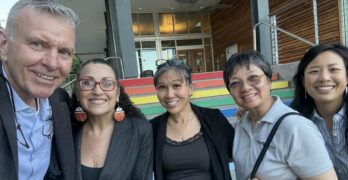From Aesop’s fable of the wolf who dressed himself in wool to blend in among the flock, we’ve inherited a warning: beware those who hide behind softness.
Interpreter denied, protection orders ignored: Chinese American women and advocates say legal system continues to fail them
Zhen Jin has lived in Kenmore for four years, taking care of her 89-year-old legally blind and deaf uncle. The 66-year-old Chinese American immigrant has lived in Seattle for a quarter of a century.
The court of complicity: Racialized misogyny behind the bench
When someone walks into a courtroom as a seasoned attorney or as a highly educated community advocate, that person could reasonably expect to be treated with the dignity and respect they deserve.
Teaching truth is not radical—it’s essential
Across the country, books that represent diversity, equity, and justice are being banned, history is being erased in textbooks, and teachers are being targeted for teaching children to critically think about our country’s history and current events.
False equivalence: When police prioritize perpetrators over victims in protection order violations
How many times do you have to call the police to get them to enforce a protection order?
Diversity can’t be canceled
Diversity. Equity. Inclusion. DEI. These are words that are now being censored by our federal government that seeks to ensure that our systems continue to be unjust and that many people, including children and families, will continue to be marginalized.
Children cannot be criminals
On Jan. 20, the current administration issued an executive order which now allows Immigration and Customs Enforcement to enter “sensitive locations,” including schools, hospitals and churches.
Is safety reserved only for the privileged?
As a Chinese American woman who was born and raised in the U.S., speaks English, holds a terminal degree, and lives an upper-middle-class lifestyle in the suburbs, I have never had to call the police for personal protection.
The Paper Shield: The racism behind unenforced protection orders
When the court issues a 10-year protection order to safeguard a victim-survivor from persistent and racist harassment, one could reasonably assume the survivor has the law on their side, that they will feel safer in their home, and that the police will protect the survivor.
Standing for justice: Our resolution
On Sept. 24, 2024, Zhen Jin went back to court again.





